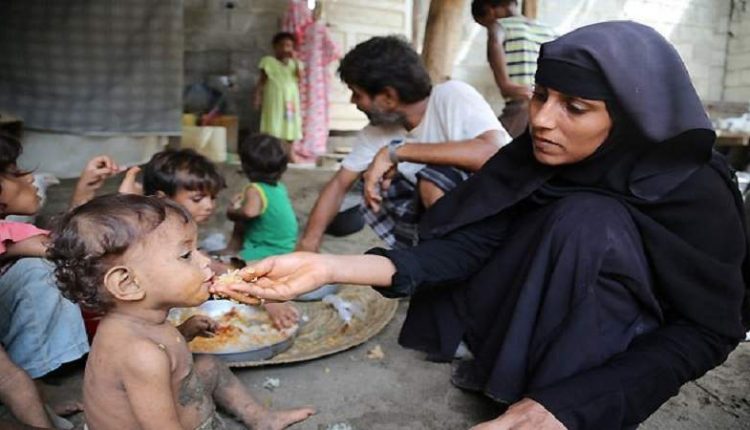Poverty, Hunger, Disease Exacerbated Amid Catastrophic US-Saudi War on Yemen
Since the outbreak of the US-Saudi aggression in March 2015, the Yemeni economy has sustained heavy economic losses that exceed $100 billion in initial estimates. The economic war waged by the coalition forces has also greatly contributed to making Yemen the largest and worst humanitarian disaster in a century, according to United Nations reports.
According to the report of the International Organization for Migration, tens of thousands have been displaced seeking shelter. During the period from January to September last year, 64,000 people were displaced as a result of the fighting in the vicinity of the city of Marib, and 25,000 displaced people were displaced in Hodeidah governorate in November 2021.
According to press statements by the Office for the Coordination of Humanitarian Affairs in Yemen, about 50,000 Yemenis are already living in famine-like conditions, while 5 million people are one step away from this situation.
The United Nations Development Program issued on September 8, 2019, confirmed that Yemen will become the poorest country in the world if the conflict continues until 2022, because Yemen will then suffer from the largest poverty gap in the world (The distance between the average income and the poverty line).
The UN report said: “The past four years of war in Yemen have led to an increase in the poverty rate from 47% in 2014 to 75% at the end of 2019.
The United Nations report confirmed that Yemen will be classified as the poorest country in the world, because the poverty rate will rise significantly, as 79% of the population will live below the poverty line, 65% will live in extreme poverty, and 84% will suffer from malnutrition, according to the report.
The report pointed out that the high rate of poverty in Yemen and the collapse of the national economy, which has recorded a loss of activity worth $89 billion since 2015, are due to factors attributed to the war and siege.
The UN report indicated that the war in Yemen disrupted government institutions and commercial markets, and destroyed the country’s infrastructure, indicating that the per capita gross domestic product decreased from $3,577 to $1,950.
The report of the United Nations Office for the Coordination of Humanitarian Affairs (OCHA) estimated that 24 million Yemenis have become dependent for their lives on humanitarian aid provided by donor countries and international organizations.
According to a UN report published by the British newspaper “The Independent” at the end of May 2017, the war and siege imposed by the coalition forces were a major cause of the collapse of the economy and famine in Yemen.

